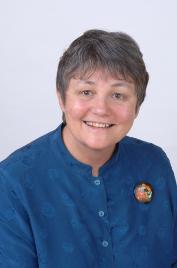'Fear and control' factors in rising Caesarean rates
Published on 02 March, 2009
Recent research examining the birth decision-making for women who have had a prior Caesarean indicates that factors other than purely clinical considerations are driving the increase in the rates of Caesareans.
The studies were by the International Program of Psycho-Social Health Research (IPP-SHR), based at CQUniversity.
"Our data shows that if a mother wishes to go for a Caesarean on the next birth then the system is very supportive of that decision," said Dr Pam McGrath, Director of IPP-SHR.
"However, women who seek to have a vaginal birth after a Caesarean (known as a VBAC) encounter resistance".
Hospital risk management is a major concern driving the pressure towards Caesarean births, as Caesareans are seen as the ‘safer' option - a perspective that is not always affirmed by the clinical literature.
"Many of the mothers we spoke to were traumatized by prior Emergency Caesareans and so sought a Caesarean Section as a way of controlling their birthing experience. They had often made up their minds well before the birth, sometimes even before conception," explained Dr McGrath.
"The findings from the study show that while some mothers cannot give birth naturally for biological reasons, this is not the full story. Fear and the need for control are other important factors informing many mothers' choice of a Caesarean.
"The findings strongly emphasise the importance of understanding and taking into consideration the mothers' psycho-social perspectives as well as the clinical factors associated with the birth.
"Providing mothers with adequate debriefing after a difficult birth experience and providing more psycho-social support are recommendations from the study that resonate with the recent Commonwealth Government's review into Australia's maternity services and the recommendation to increase the number of midwives."
.............................................................................................................
* IPP-SHR is a collaborative initiative jointly funded by CQUniversity and the National Health & Medical Research Council. It aims to document and examine the human experience of serious illness and ‘make a difference' to those at the coalface of healthcare.
Suggested Links:
Decision Making in Women's Birthing Choice Following a Caesarean Section
IPP-SHR = http://www.ipp-shr.cqu.edu.au/


